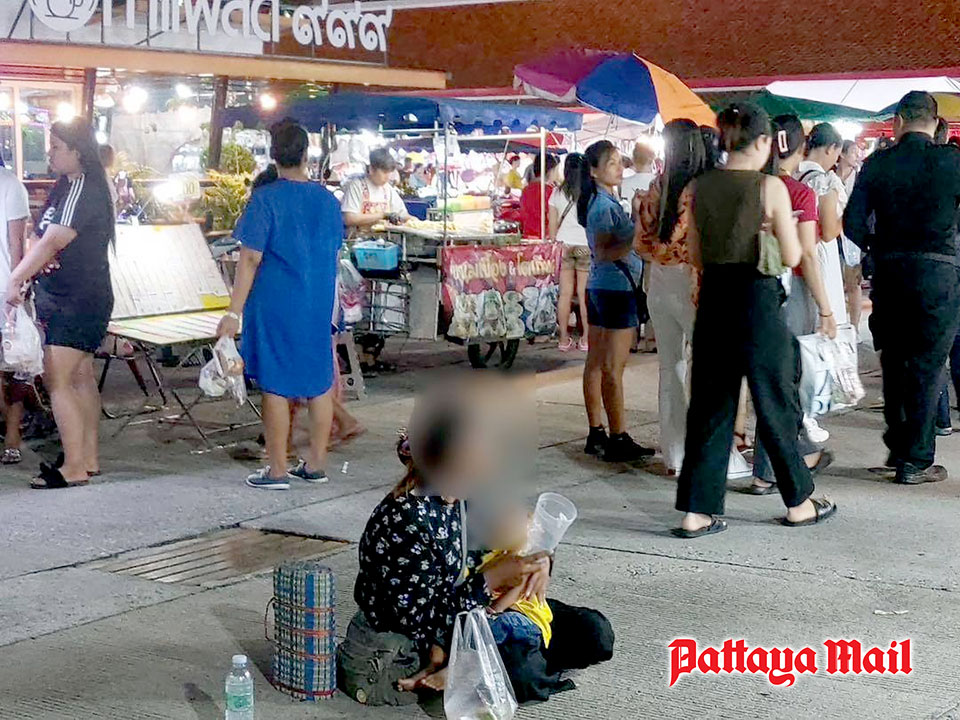
PATTAYA, Thailand – On the evening of July 20, as Wat Chai Mongkol Temple in South Pattaya was bustling with activity for its Buddhist ceremony and candle casting for Buddhist Lent, local residents reported an influx of beggars scattered across the roads, markets and temple grounds. This increase in beggars was particularly distressing given the large crowds of charitable visitors who were there to partake in the religious festivities.
The presence of these beggars, including young children, newborn infants, disabled individuals, and the elderly, drew sympathy and concern from attendees. It was apparent that these beggars were part of a coordinated group, possibly organized by a single leader, using the occasion of the temple’s events to solicit money from visitors.
This issue is not new. Government agencies have previously undertaken efforts to crack down on such groups, yet these measures seem to have been temporary. Once authorities’ attention shifts, these begging rings reappear, causing ongoing disturbances and detracting from the sanctity of the religious events.
The situation demands more decisive action from local authorities. It is imperative to implement stricter and more effective measures to prevent the return of these beggars and ensure that they do not disrupt future religious ceremonies. By maintaining the order and sanctity of such events, Pattaya can better preserve its reputation as a city that respects both its cultural and spiritual traditions.








